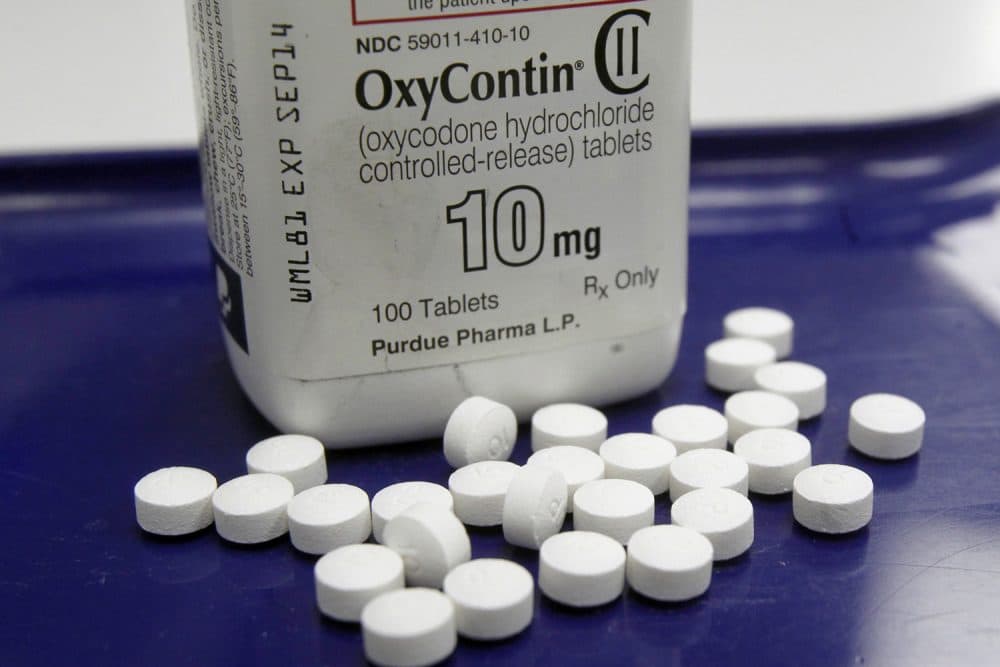Advertisement
Mass. Judge Says More Details Tied To Purdue Pharma Lawsuit Will Be Released

It was clear as Judge Janet Sanders took the bench that this would not be a routine "status hearing" in the case Commonwealth of Massachusetts v. Purdue Pharma. Also named as defendants are 18 individuals tied to the company, which makes OxyContin. Wooden benches were packed with moms and other family members who believed the overdose deaths of their loved ones started with a prescription for Purdue's blockbuster opioid pill.
The scene set the stage for one of the key legal issues before Sanders: Should public or private interests prevail in the judge's decision regarding still-blacked-out sections of the state's complaint? Purdue argues that much of the information in the document, which outlines Healey's case against Purdue, is propriety or confidential.
Sanders says she will have a written decision early next week that will require lifting redactions in at least one major section of the complaint related to former Purdue Vice President of Sales Russell Gasdia. Sanders also said she'll order Purdue to hand over an additional 581 documents that state Attorney General Maura Healey says would support her case. Tim Blank, an attorney for Purdue, indicated he may appeal in federal court.
Purdue argued that it has already agreed to release much of the information Healey obtained through a consolidation of hundreds of lawsuits against Purdue, even though it has not been cleared for release in the Ohio court overseeing those cases. The company asked Judge Sanders to wait for an update from the Ohio court before allowing any additional disclosures in Massachusetts.
Eight members of the Sackler family, which owns Purdue, are defendants in the suit. Their attorney said one paragraph in the complaint reveals an individual's medical condition and should remain private. Other redacted sections apparently list salaries of top executives or payments to some of the Sacklers.
Sanders suggested Massachusetts courts are not bound by the proceedings in Ohio. Attorneys for two groups urged Sanders to release the Purdue complaint immediately, without any redactions. One group is a consortium of media organizations, including WBUR. The other is Learn to Cope, representing more than 10,000 members who have someone in their family addicted to opioids or drugs. Sanders said she would not rule from the bench but would release a written decision, likely allowing some sections to remain redacted, including the individual medical details.
Rhonda Lotti of Watertown listened from the back row of the courtroom. Her daughter, Mariah, died after an overdose in 2011 at age 19.
"I'm feeling hopeful that the truth is finally going to come out," Lotti said. "They [Purdue and the Sacklers] are no longer going to be able to hide behind their attorneys and their money, while we live with the losses of our loved one."
Advertisement
Healey gathered with Lotti and other family members, holding posters of deceased children, after the hearing.
"These families have had to endure so much in terms of stigma," Healey said. "It is really rich for this corporate defendant and corporate officers and directors to come forward, and under the guise of embarrassment or shame about their alleged misconduct, to claim that this information shouldn't come to light."
During the hearing, an attorney for Purdue repeated the company's claim that Healey's complaint mischaracterizes documents and conversations. A prior statement added that Healey was "often highlighting potential courses of action that were ultimately rejected by the company."
A spokesman for Purdue declined to comment after Friday's hearing.
